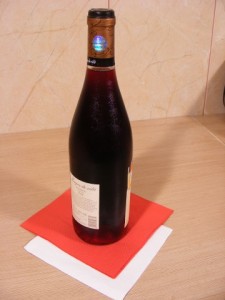 Constitutional free speech rights don’t give a bankruptcy attorney license to refer to a court’s findings as “half-baked,” the 11th Circuit Court of Appeals ruled this month. The federal appeals court upheld a Florida U.S. Bankruptcy Court’s 60-day suspension of a bankruptcy lawyer whose scathing brief dressed down a bankruptcy judge.
Constitutional free speech rights don’t give a bankruptcy attorney license to refer to a court’s findings as “half-baked,” the 11th Circuit Court of Appeals ruled this month. The federal appeals court upheld a Florida U.S. Bankruptcy Court’s 60-day suspension of a bankruptcy lawyer whose scathing brief dressed down a bankruptcy judge.
“It is sad when a man of your intellectual ability cannot get it right when your own record does not support your half-baked findings,” attorney Kevin Gleason wrote in an April 2011 brief.
A Wall Street Journal blog reported that the case raises a question “at least in theory” about the scope of attorneys’ First Amendment rights when addressing judges. Gleason, who practices in Hollywood, Fla., was also sanctioned for ex parte communication with the judge after the disciplinary proceedings were initiated. Gleason had sent the judge a bottle of wine along with a card seeking to settle the dispute privately. Bankruptcy Judge John Olson returned the wine and the card unopened.
Gleason asserted the suspension not only deprived him of constitutional rights to free speech and due process, but exceeded the authority of the bankruptcy court. In its ruling, the 11th Circuit court found otherwise.
For his part, Gleason’s appellate filings argued that the brief for which he was sanctioned merely contained “truthful responses to a string of unjustified abuses.” He asserted the Bankruptcy Court had no rules in place authorizing an en banc hearing such as the court conducted when it levied sanctions against him. For that, he asserted a due-process violation.
In a per curiam ruling, the appeals court cited prior 11th Circuit cases in which it had recognized a court’s “inherent power to oversee attorneys practicing before it.” What’s more, Title 11 of the United States Code empowers a court – of it’s own accord – to take actions or make determinations to prevent abuses of court processes. And local court rules allow the Florida Bankruptcy Court to suspend any attorney after disciplinary proceedings initiated by “at least one judge.”
To exercise inherant power to impose sanctions against an attorney, a court must first find that the attorney acted in bad faith, the appellate court concluded. The court cited case law that holds bad faith as an appropriate finding when an attorney has acted “vexatiously, wantonly, or for oppressive reasons.” To reverse the bankruptcy court’s finding, the appeals court would have had to find clear error in the lower court’s rulings. The bankruptcy courts finding of bad faith on the attorneys part was not clearly erroneous, the federal appeals court found.
Gleason filed the federal appeal of the bankruptcy courts’ sanctions pro se. He told the Wall Street Journal he is consulting with an attorney about his next move. The WSJ reported that he’s already served the 60-day suspension, but that the sanctions had a significant negative impact on his law practice.

